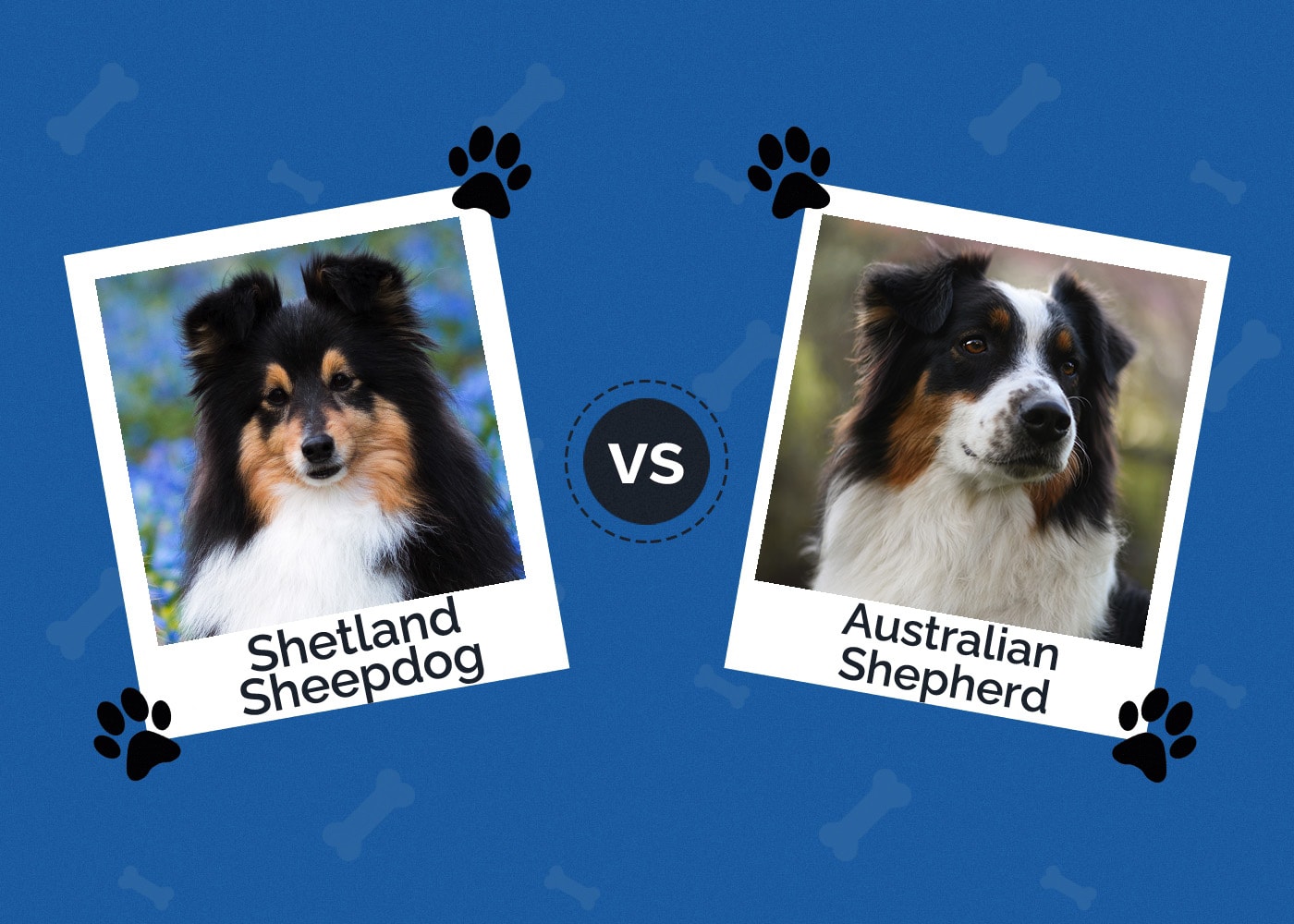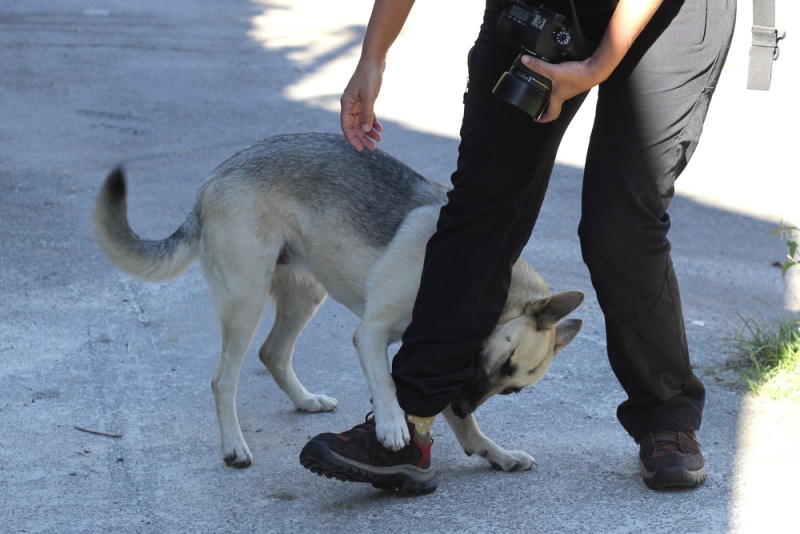Maltipoo vs Yorkiepoo: Differences & Similarities (With Pictures)
Updated on
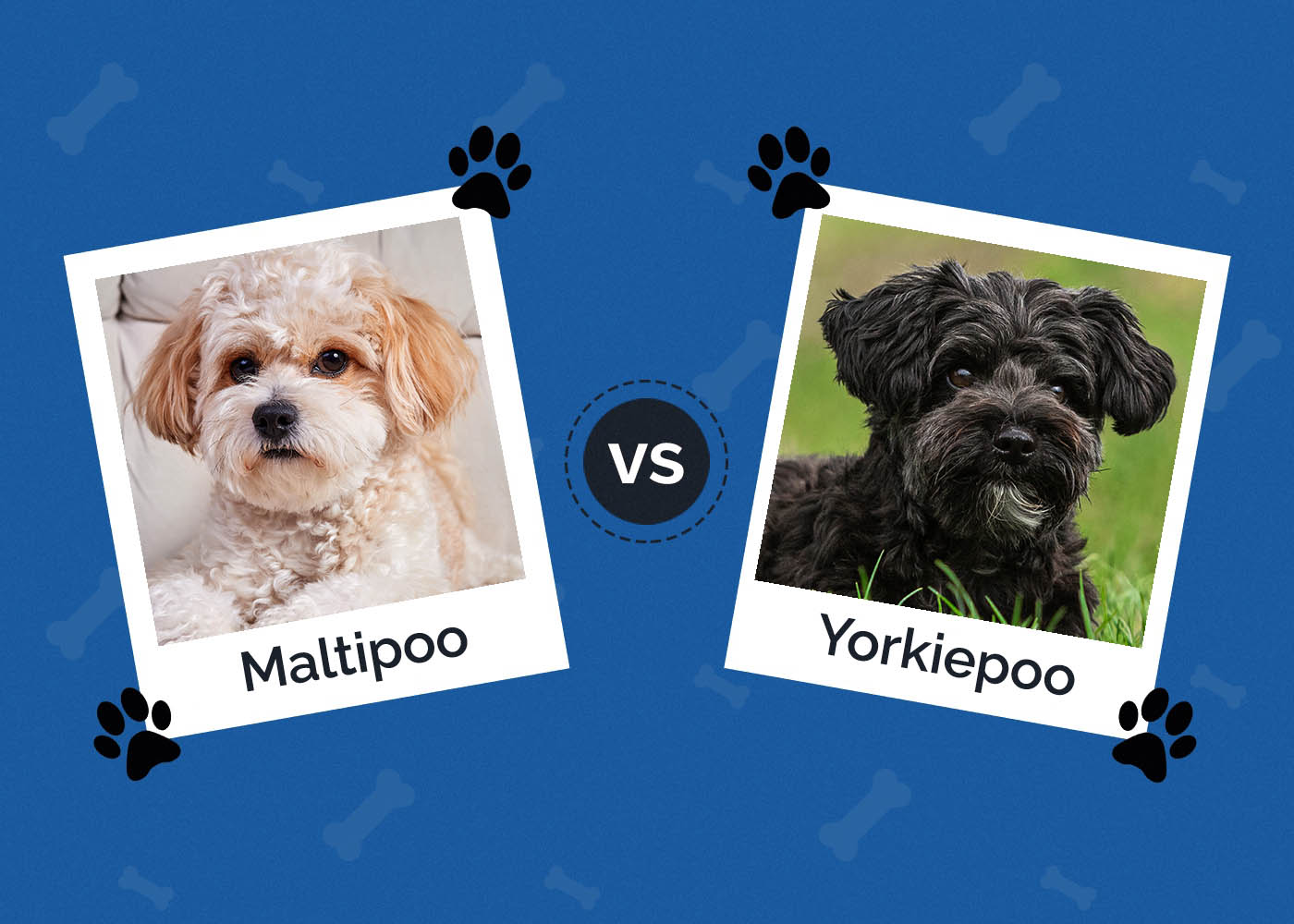
The Maltipoo and Yorkiepoo are designer crossbreeds that share the Poodle parentage. However, the Maltese (Maltipoo) and Yorkshire Terrier (Yorkiepoo) are unique breeds with distinct personality traits, making them different in several ways. If you are considering adopting the Maltipoo or Yorkiepoo, you should compare these differences to make the best choice for you and others in your home.
Below, we will cover everything from each breed’s personality, training, exercise needs, overall health, and what you can expect regarding grooming. Then, you will be better prepared to adopt a pup that will fit into your home. Let’s get started.
Visual Differences
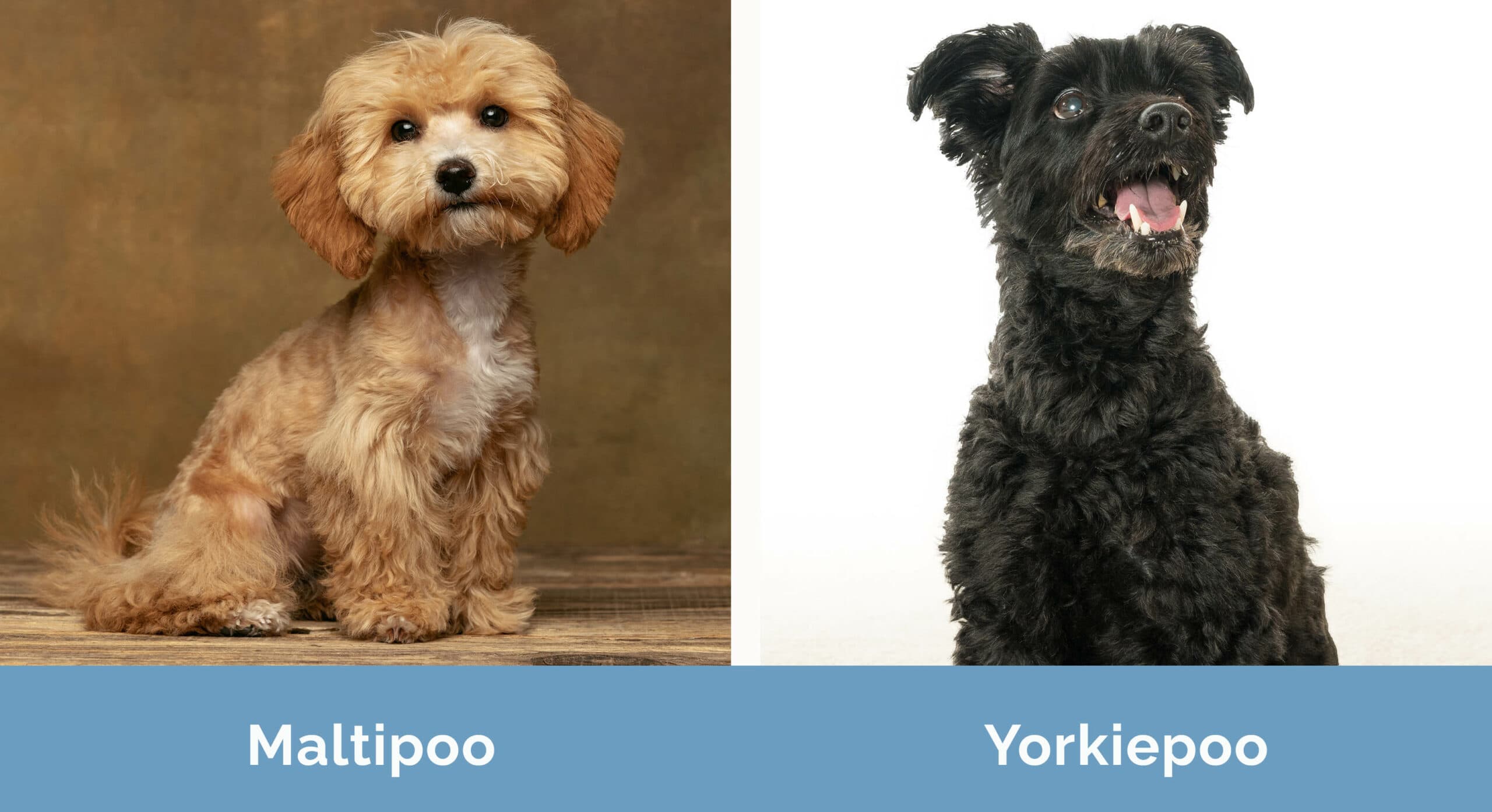
At a Glance
- Average height (adult): 8–14 inches
- Average weight (adult): 5–20 pounds
- Lifespan: 10–13 years
- Exercise: 30+ minutes a day
- Grooming needs: Easy
- Family-friendly: Yes
- Other pet-friendly: Yes
- Trainability: Intelligent, friendly, active, affectionate
- Average height (adult): 7–15 inches
- Average weight (adult): 5–15 pounds
- Lifespan: 10–15 years
- Exercise: 30+ minutes a day
- Grooming needs: Moderate
- Family-friendly: With supervision
- Other pet-friendly: With training
- Trainability: Stubborn, Intelligent, requires socialization
 Maltipoo Breed Overview
Maltipoo Breed Overview
Personality / Character
Maltipoos are gentle and highly affectionate dogs. They get along with almost everyone, including guests in your home, welcoming everyone with a friendly bark and cuddle, but are also intelligent enough to pick up on social cues to know if someone shouldn’t be there. They love to be held and crave attention since it’s in their nature. However, because they crave their owners’ attention, they can easily experience separation anxiety.
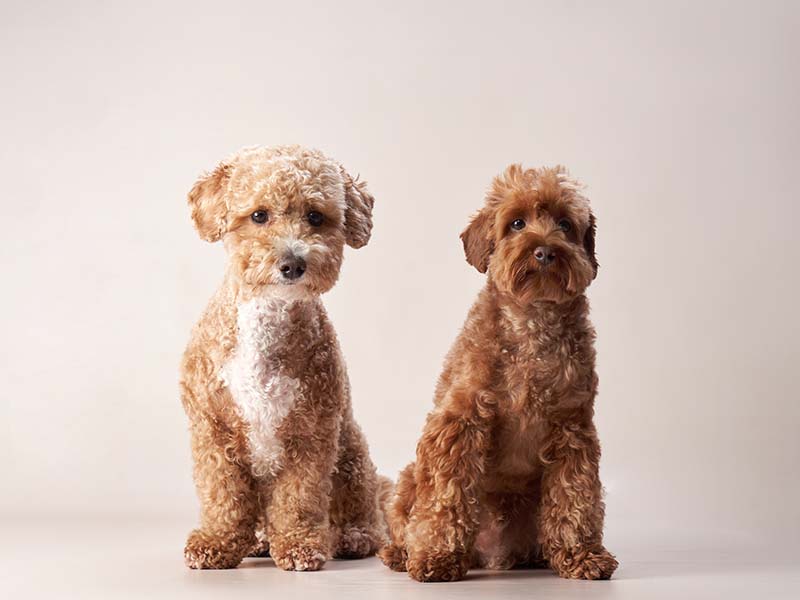
Training
Because they are eager to please their owner, training a Maltipoo is relatively easy, especially compared to many other small breeds. They are very active and can get rambunctious at times, which is in their nature. This can be controlled with exercise but rarely with training. However, you will want to train against barking and other vocalization, especially if you live in an apartment where it can become a nuisance.
Exercise
The Maltipoo is a very active pup but only needs about 30 minutes of walking each day, even though they have moderate energy while indoors. Owners should provide mental stimulation through playtime with owners, visitors, or other pets. Outside of walks and playtime, they are fine being held or sitting with you if things are quiet.
Health
The Maltipoo is surprisingly healthy, but dogs are susceptible to health problems at any age. Regular brushing, dental treats, and choosing premium food can help avoid dental disease in small dogs. Other conditions specific to this breed include luxating patellas and white shaker syndrome, but they are rare.
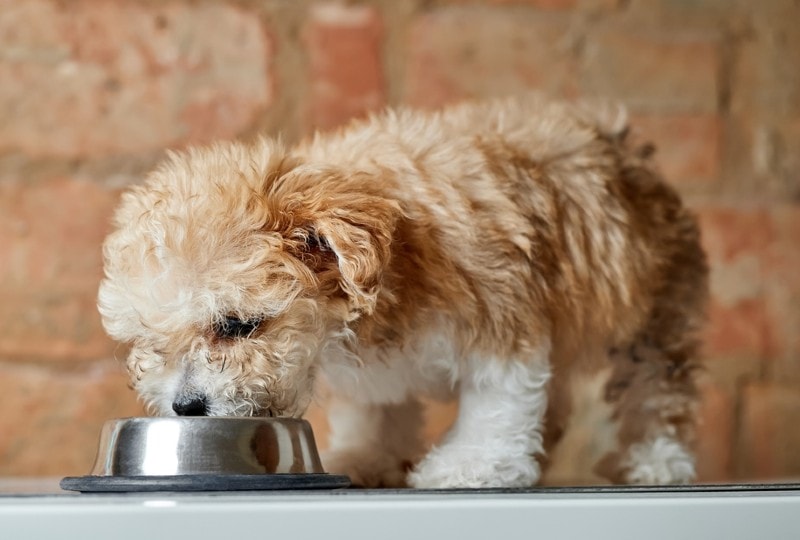
Appearance / Grooming
Your dog’s coat may vary depending on its breeding. Maltipoos can have medium to long fur but typically have curly coats. Even though they shed very little, making them an ideal choice for those with allergies, they need daily brushing to keep their coat full and fluffy. They are available in various coat colors, including black, gray, blue, fawn, white, cream, yellow/gold, brown/chocolate, and red. There are various patterns as well.
Suitable for:
The Maltipoo is a superb choice for many homes and owners. They thrive in apartments and need very little exercise time. It is also an ideal breed for older adults looking for companion pets and single adults living in apartments. While it is a family-friendly breed, it gets hyper and could injure young children inadvertently, making it best for homes with older kids.
- Great with older children
- Good choice for apartment living
- Ideal companion pet
- Minimal exercise and grooming needs
- They don’t shed very much
- They are known for excessive barking
- Prone to separation anxiety
- May be expensive to adopt
Yorkiepoo Breed Overview
Personality / Character
Yorkiepoos are intelligent, clever, and curious. They love to be a part of everything you do and will do things to grab your attention if they don’t already have it. If they’ve been trained to do tricks to get your attention, that’s great! If not, they may resort to destructive behaviors. However, they love to learn new tricks, so keeping them occupied is easy. They can be loud and welcome visitors with a friendly bark but can easily sense when someone isn’t welcome. Their personality highly depends on the parents and their dominant breeds.
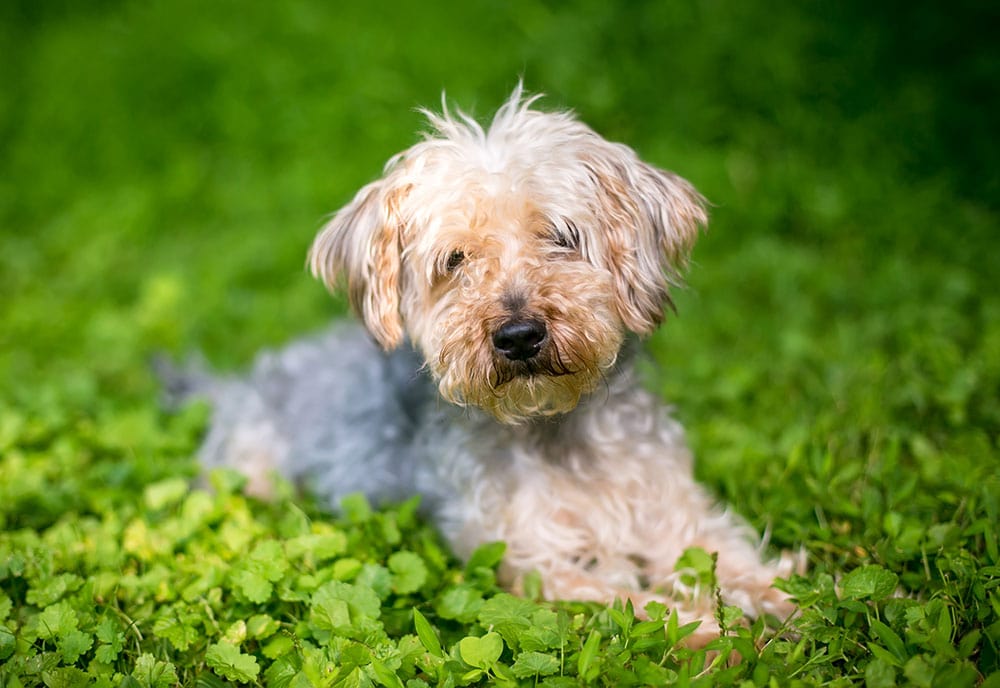
Training
Training early on is very important for the Yorkiepoo, especially given the Yorkshire Terrier’s breeding as a working dog. They were bred to chase, which means your Yorkiepoo will likely chase after things that interest them. This is in their nature, so consistently walking with a harness and leash is vital to keep them safely by your side. The Yorkiepoo is prone to feeling overwhelmed in social situations, so early socialization with people and pets can prevent the behavior. Remember, these pups are intelligent, so games and tricks will keep them active and happy.
Exercise
The Yorkiepoo is also an active pup, just like the Maltipoo, requiring only a half hour of outdoor walking each day. They will still have a moderate amount of energy indoors. However, unlike the Maltipoo, who will settle down if they don’t get mental stimulation with games or interaction with people, the Yorkiepoo is more likely to become bored. This can lead to destructive behaviors without training early on. Regular playtime and human interaction can prevent these behaviors.
Health
Yorkiepoos are relatively healthy, especially compared to other small breeds. However, they typically inherit health conditions from their parents, so you’ll need to work with a reputable breeder. Still, any breed is susceptible to a variety of illnesses. The Yorkiepoo is prone to Addison’s Disease, Cushing’s syndrome, and diabetes. Although bloat usually occurs in large breeds, Yorkiepoos are more susceptible to it than most other small dogs. Other conditions could include specific ones related to the liver, spine, and eyes, which are rare and mostly occur from poor breeding practices.
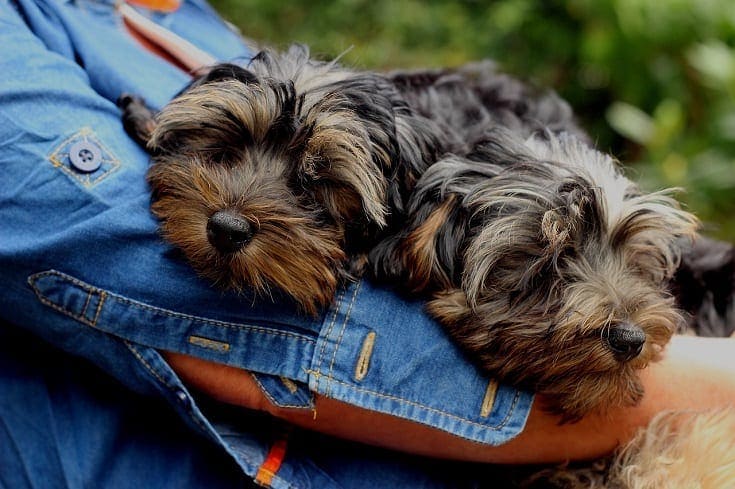
Appearance / Grooming
Yorkiepoos vary in appearance. They could look more like a Yorkie or Poodle, depending on their parentage. You’ll also find a range of colors, including black, sable, white, apricot, red, and cream. There may be patches or points in their fur, meaning that your Yorkiepoo will be one of a kind in both personality and appearance. Whether they inherit the longer Yorkie coat or the fluffier Poodle one, you’ll need to invest some time in grooming. Daily brushing and detangling are vital, and you may also want to schedule monthly visits to the groomer.
Suitable for:
Yorkiepoos are great companion animals and, because of that, don’t like to be alone much. They are ideal for owners that are home much of the time or who can take them with them to most places. For families, someone should be home often. A Yorkiepoo is active and family-friendly, but they’re better with older children who can keep up with them. Because they don’t need a large space, they are great pets for apartments.
- Very friendly and affectionate
- Smart and easy to train
- They don’t shed very much
- Low exercise needs
- Good choice for apartment living
- They are fragile and can be injured
- They are known for excessive barking
- Requires frequent grooming
Which Breed Is Right for You?
Adopting a pet is a long-term commitment, and you should carefully consider each breed and its various traits. You may want to speak with several breeders and interact with the Maltipoo and Yorkiepoo in person before making your decision. Neither breed is better than the other. It’s about choosing which is better for you, your family, and your home. We hope this guide has helped you in making that decision!
Featured Image Credit: (L) marketlan, Shutterstock | (R) Annabell Gsoedl, Shutterstock



